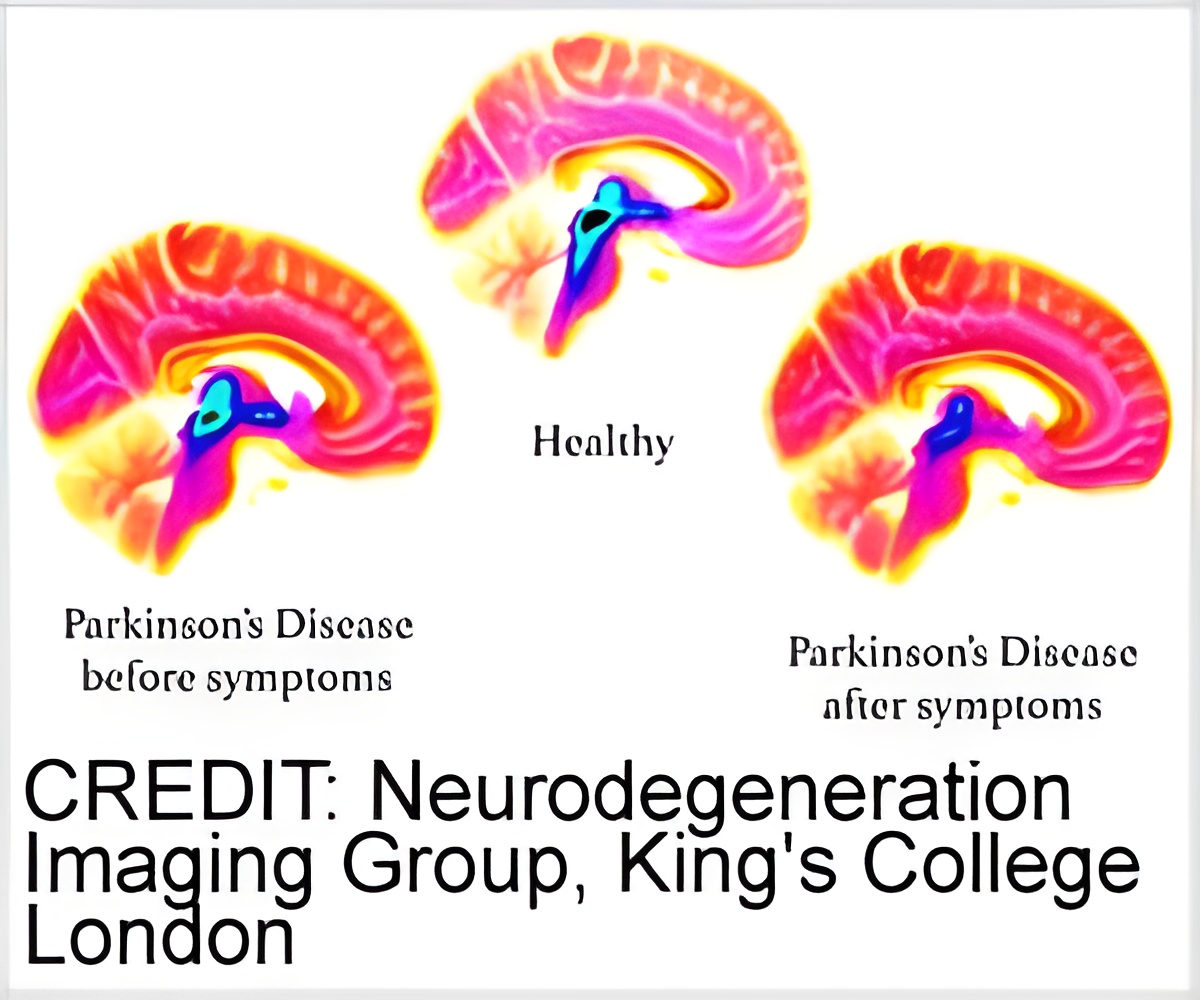
‘Brain imaging of the serotonin system could become a valuable tool to detect individuals at risk for Parkinson's disease, monitor their progression and help with the development of new treatments.’
Tweet it Now
Chief investigator Professor Marios Politis, Lily Safra Professor of Neurology & Neuroimaging at the Institute of Psychiatry, Psychology & Neuroscience (IoPPN), says: 'Parkinson's disease has traditionally been thought of as occurring due to damage in the dopamine system, but we show that changes to the serotonin system come first, occurring many years before patients begin to show symptoms. Our results suggest that early detection of changes in the serotonin system could open doors to the development of new therapies to slow, and ultimately prevent, progression of Parkinson's disease.' People with Parkinson's disease have build-ups of the protein α-synuclein in the brain. While there is no clear cause for most people, a minority of cases are caused by genetic mutations. People with mutations in the α-synuclein (SNCA) gene are extremely rare but are almost certain to develop Parkinson's disease during their lifetime, making them ideal for studying the train of biological events that leads to Parkinson's disease.
The SNCA genetic mutation originates in villages in the northern Peloponnese in Greece and can also be found in people who migrated to nearby regions in Italy. Over two years, the researchers identified 14 people with the SNCA gene mutation from Greece and Italy and flew them to London for brain imaging and clinical assessments. Half of the participants had not begun to show any symptoms of Parkinson's.
Data from the 14 people with SNCA gene mutations were compared with 65 patients with non-genetic Parkinson's disease and 25 healthy volunteers. The researchers found that the serotonin system starts to malfunction in people with Parkinson's well before symptoms affecting movement occur, and before the first changes in the dopamine system.
First author Heather Wilson, from the IoPPN, says: 'We found that serotonin function was an excellent marker for how advanced Parkinson's disease has become. Crucially, we found detectable changes to the serotonin system among patients who were not yet diagnosed.’
Advertisement
Source-Eurekalert












